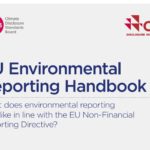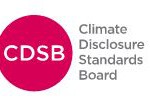Regulated by IMRO Information technology companies are the worst at reporting on any environmental issues out of 38 sub-sectors analysed in PIRC’s annual survey of environmental reporting in the UK. Only 14% disclose having an environmental policy and none describe any improvements in environmental impacts, target setting or undertaking green audits.
Stuart Bell, PIRC Research Director commented "IT companies have a dismal record on green reporting. All companies, whatever their sector, have environmental impacts such as energy use and production of waste. These findings bring into question the commitment of ‘new economy’ companies to good environmental management". The widest-ever survey of environmental disclosures, which covers 674 listed companies in the All-Share Index, also shows that environmental reporting is significantly worse among smaller companies.
Whereas half of FTSE 100 companies report on environmental improvements and target setting, less than 10% of SmallCap companies do so, in spite of government exhortations that all companies with more than 250 employees should report. Drawing attention to this, the survey states "If high standards of environmental management are to spread throughout the economy, there is a major need for these smaller companies to address their reporting responsibilities".
The best sectors for reporting are Utilities (especially electricity companies), Resources (including mining and oil & gas), Basic Industries (steel, paper, chemicals, construction) and some service sectors such as food retailers and telecoms. Good reporting appears to be associated with either strict regulation, very high environmental impact or a large consumer base. But the survey reveals that many companies which are involved high environmental impact manufacturing businesses, but which do not have a public consumer base, such as engineering, automobile components, electronics and conglomerates, do far less well. In the past two years since PIRC’s first survey on the issue, reporting has generally improved on most issues, though often from a very low base. However, in some sub-sectors disclosure has deteriorated. Examples are electronics and food producers in terms of environmental improvements and packaging and healthcare in terms of target setting.
Publication of separate environmental reports shows little progress with such publications largely confined to FTSE100 companies. Stuart Bell commented "Disclosure on environmental issues should not be seen as the preserve of a few large companies in the public spotlight. Shareholders need to know how all companies are addressing environmental issues if they are to be confident that managements are acting responsibly and effectively. here is a danger of a reporting gap opening between a relatively small number of progressive companies which are exploring reporting initiatives in an innovative way and the rest which are, at best, paying lip-service to the environment while providing little in the way of hard data to demonstrate improvements in their performance."
Environmental Reporting 2000′ contains a full breakdown of environmental reporting profiles for all companies surveyed and also analyses these by sector, sub-sector and market index, providing the most comprehensive assessment ever undertaken on these issues. Full copies of the report are available on request (for members of the press).



